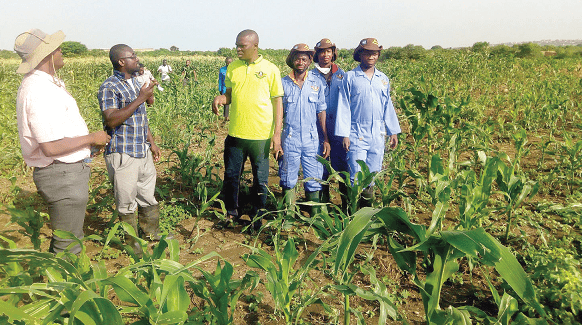
‘More service persons to be deployed this year’
The National Service Scheme (NSS) had generated and issued 121,236 personal identification numbers (PINs) to prospective service persons for the 2019/20 service year as of June 14, this year.
The figure is, however, expected to increase by the time an ongoing verification exercise for students in private tertiary institutions and defaulters is completed by June 28, this year.
What this means is that more service persons will be deployed for the 2019/20 service year as compared to the 2018/19 year, when 85,708 service persons were deployed to user agencies across the country.
The Director, Corporate Affairs at the NSS head office, Mr Armstrong Esaah, who disclosed this to the Daily Graphic, said there was still an opportunity for persons who had PINs but could not register as of June 14, 2019, to do so before June 28.
He urged students who still had issues with registration for this year’s national service to contact regional secretariats of the NSS to verify their documents.
“Affected applicants are required to present copies of their registration documents such as their school certificates or transcripts, an attestation or introductory letter from the institution attended and a copy of any of the following documents: voter’s identity card, driving licence, passport, or national ID card,” he said.
Priority on agriculture
In another development, the Executive Director of the scheme, Mr Mustapha Ussif, has announced that the scheme will this year deploy about 9,000 service persons to its agriculture module.
He said 5,000 of the service persons would be deployed to the Ministry of Food and Agriculture (MoFA), while 2,640 and 1,000 would also be posted to metropolitan, municipal and district assemblies (MMDAs) and the NSS farms, respectively.
Last year, 5,000 service persons were deployed to support the implementation of the ‘Planting for Food and Jobs (PFJ) programme, while 500 others were posted to the newly introduced entrepreneurship and innovation model.
Mr Ussif explained that the move was to increase the number to support the government’s Planting for Food and Jobs (PFJ) policy and also produce enough maize to support the free senior high school programme.
Mr Ussif made this known to the Daily Graphic during a working visit to the Dawhenya maize farm of the NSS last Friday, during which he monitored activities on the farm and interacted with the workers there.
Target
This year, the NSS management has presented 5,000 bags of maize in support of the free SHS programme.
However, in his interview with the Daily Graphic, Mr Ussif said the scheme’s target was to produce enough maize to feed all the students under the programme.
He said towards that objective, the NSS planted 10,000 acres of maize across the country this year with the ambitious target to be the sole supplier of maize to feed all students under the free SHS programme.
"This year, the NSS supported Free SHS with 5,000 bags of maize, but the larger vision is that we want to feed all the students in the senior high schools across the country with maize so that the government will not struggle to buy maize anywhere," he emphasised.
He said the management of the NSS was passionate about the agriculture module of the scheme's programmes because of the key role the sector played in national development.
Mr Ussif urged young people who had the opportunity to be posted to the agriculture module to take advantage of the programme and be entrepreneurs in the sector.
School farms
The NSS executive director added that the scheme had also started implementing its initiative to establish farms in 100 senior high schools across the country to encourage students to take up careers in agriculture.
He said while some 10 schools had already planted the maize, others were preparing their land to take off.
